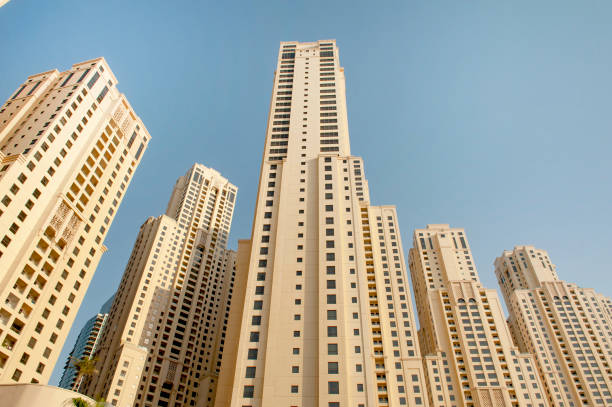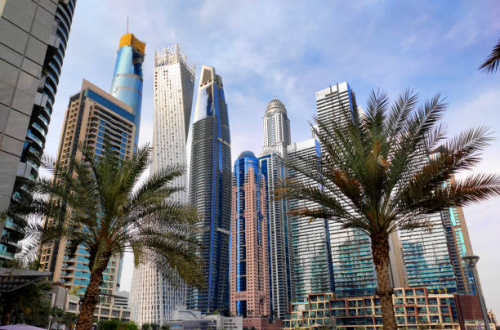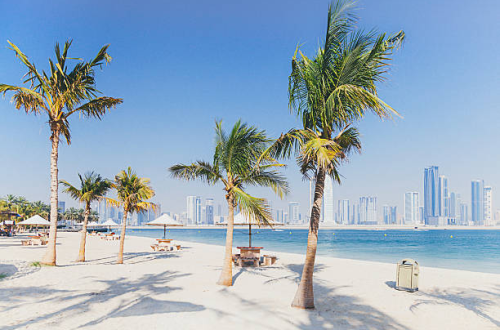Dubai’s booming real estate market offers a plethora of opportunities for foreign investors. The legal framework is favorable, making it relatively straightforward for expatriates to purchase property. By understanding the types of properties available, the legal requirements, and the costs involved, foreigners can make well-informed decisions. This article will guide you through the process step-by-step, ensuring that you have all the necessary information to buy property in Dubai. From initial research to the transfer of ownership, we cover everything you need to know.
Reasons to Invest in Dubai Real Estate
Dubai presents a robust and dynamic real estate market that continually attracts global investors. One compelling reason to invest here is the economic stability the city offers. With its flourishing tourism and business sectors, Dubai provides a stable and prosperous environment. Moreover, the city boasts tax-free policies, which means no yearly property taxes, adding significant financial advantages. Another appealing factor is the high rental yields due to strong demand for properties, especially in popular areas.
Types of Properties Available to Foreigners
A key consideration for foreigners eying Dubai real estate is the type of property they are eligible to purchase. Two primary types are freehold and leasehold properties. Freehold properties grant full ownership rights, making them highly attractive. Leasehold properties, while different, still offer substantial benefits. Understanding these distinctions will help you make an informed decision about which type of property suits your needs.
Freehold Properties
Freehold properties allow full ownership and are available in designated areas. These include prominent locations like Dubai Marina, Palm Jumeirah, and Downtown Dubai. The benefits are numerous, from full control over the property to the potential for high resale value. In areas like Aykon City, foreign investors are increasingly finding lucrative investment opportunities.
| Freehold Areas | Notable Features |
|---|---|
| Dubai Marina | Waterfront properties, luxury apartments |
| Palm Jumeirah | Iconic landmarks, high-end villas |
| Downtown Dubai | Near Burj Khalifa, thriving commercial area |
| Aykon City | Mixed-use community, modern amenities |
Leasehold Properties
Leasehold properties in Dubai involve long-term leases, usually for 99 years. While not offering full ownership, they still provide a secure investment. Leasehold terms are typically renewable, and the associated legalities ensure that the lessee enjoys significant rights over the property. These options are attractive for individuals looking for lower initial investments.

Legal Requirements for Foreign Buyers
Eligibility Criteria
Dubai has made it relatively easy for foreigners to invest in real estate, but there are eligibility criteria to meet. First, any international investor is eligible to purchase property in designated freehold areas. However, certain properties may have minimum investment thresholds. Most importantly, the investor must comply with UAE laws, ensuring that all financial transactions are transparent and legal.
Necessary Documentation
Several essential documents are required for foreigners to purchase property in Dubai. Most importantly, you need a valid passport and proof of residency, if applicable. Additionally, documentation to prove sufficient funds for the purchase is necessary. Some banks may also require a letter from your employer. These documents are vital for moving forward in the buying process.
The Property Buying Process in Dubai
Purchasing property in Dubai involves several well-defined steps:
- Initial Search and Property Selection – start by identifying potential properties.
- Memorandum of Understanding (MoU) – a preliminary agreement is signed.
- Hiring a Reliable Real Estate Agent or Lawyer – ensures proper guidance.
- Due Diligence – property checks and legal reviews are conducted.
- Signing the Sales Agreement – formalizes the terms of purchase.
- Transfer of Ownership at the Land Department – finalizes the transaction.
Financing Options for Foreign Buyers
Mortgage Options
For those not paying in full, understanding mortgage options is crucial. Many major banks in Dubai offer mortgage facilities to non-residents. It’s essential to research various banks and their terms, as interest rates and conditions can vary. Adequate documentation and a credit check will likely be necessary to secure a mortgage.
Bank Financing
Several banks in Dubai provide mortgages to foreign buyers, including Emirates NBD and HSBC. These banks offer competitive interest rates and flexible terms. Typically, you will need to provide proof of income, bank statements, and other relevant financial documents. This ensures that you are capable of fulfilling your mortgage obligations.
Alternative Financing Methods
If traditional banking options are not feasible, alternatives exist. Seller financing is one such method where the seller provides financing directly. This can be a useful option for those who might not qualify for a bank mortgage. Additionally, personal funds or overseas financing may be viable, depending on your financial landscape.
Costs Involved in Buying Property in Dubai
Down Payments and Bank Fees
Initial costs include down payments, which generally range from 20% to 25% of the property’s value. Additional fees can also pile up, such as bank processing and administrative fees. It’s vital to budget for these extra costs to avoid financial surprises during the purchasing process.
Legal and Administrative Fees
Legal and administrative fees are also part of the equation. These can include registration fees at the Dubai Land Department, notary fees, and lawyer fees. Typically, Land Department fees amount to about 4% of the purchase price. These costs are essential to ensure the legality and smooth transfer of property.
Ongoing Costs
Once the property is yours, ongoing costs will apply. Maintenance fees for the upkeep of shared facilities are common in apartment complexes. Additionally, property management fees may be applicable if you hire a firm to manage your rental property. Being aware of these ongoing costs ensures better financial planning.
- Maintenance Fees – paid periodically for shared facilities.
- Property Management Fees – applicable if outsourcing property management.

Conclusion
Investing in Dubai’s real estate market offers substantial benefits, from economic stability to high rental yields. However, thorough research is crucial, as is understanding the legal and financial commitments involved. Whether you opt for a freehold property in popular areas like Aykon City or a leasehold property, informed decisions can provide excellent returns. Consulting real estate professionals or legal experts can further ease the buying process, ensuring compliance and peace of mind.
Frequently Asked Questions
1. Can foreigners purchase property in any area of Dubai?
No, foreigners are restricted to buying freehold properties in certain designated areas such as Dubai Marina, Palm Jumeirah, and Downtown Dubai.
2. What are the typical down payment requirements for foreigners looking to buy property?
The down payment typically ranges between 20% to 25% of the property’s value, depending on the mortgage provider and the buyer’s financial status.
3. Do I need a resident visa to buy property in Dubai?
No, you do not need a resident visa to buy property in Dubai, but owning property can make you eligible for a residency visa depending on the value of the property.
4. How long does the property buying process usually take?
The entire process, from selecting a property to transferring ownership, can take anywhere from a few weeks to about two months, depending on various factors like due diligence and loan approval.
5. Are there any annual property-related taxes I should be aware of?
Dubai offers a tax-free environment, so there are no annual property taxes. However, you will have to pay ongoing costs such as maintenance fees and utility bills.





